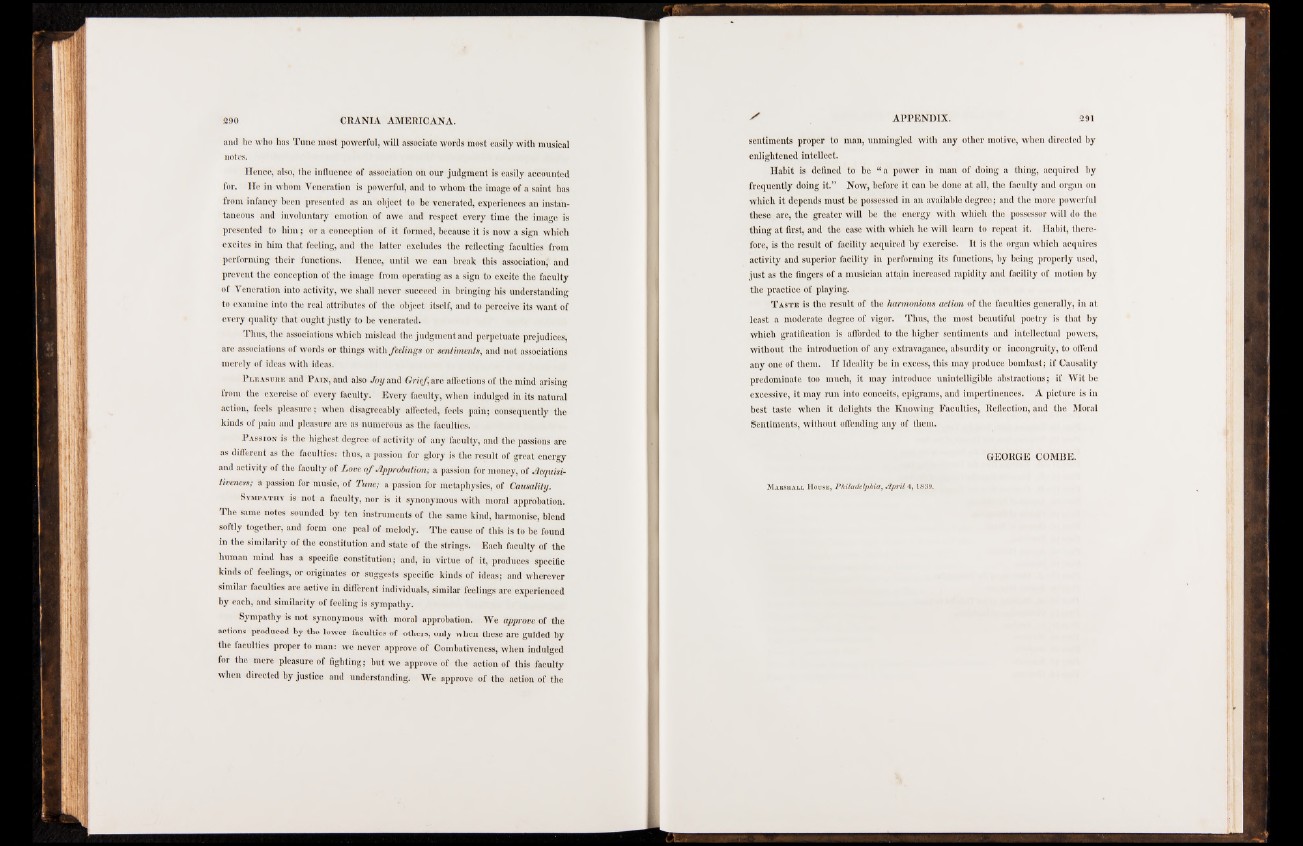
and lie who has Tune most powerful, will associate words most easily with musical
notes.
Hence, also, the influence of association on our judgment is easily accounted
for. He in whom Veneration is powerful, and to whom the image of a saint has
from infancy been presented as an object to be venerated, experiences an instantaneous
and involuntary emotion of awe and respect every time the image is
presented to him ; or a conception of it formed, because it is now a sign which
excites in him that feeling, and the latter excludes the reflecting faculties from
performing their functions. Hence, until we can break this association; and
prevent the conception of the image from operating as a sign to excite the faculty
of Veneration into activity, we shall never succeed in bringing his understanding
to examine into the real attributes of the object itself, and to perceive its want of
every quality that ought justly to be venerated.
Thus, the associations which mislead the judgment and perpetuate prejudices,
are associations of words or things with feelings or sentiments, and not associations
merely of ideas with ideas.
Pleasure and Pain, and also Joy and Chief, are affections of the mind arising
from the exercise of every faculty. Every faculty, when indulged in its natural
action, feels pleasure; when disagreeably affected, feels pain; consequently the
kinds of pain and pleasure are as numerous as the faculties.
Passion is the highest degree of activity of any faculty, and the passions are
as different as the faculties: thus, a passion for glory is the result of great energy
and activity of the faculty of Love o f Approbation; a passion for money, of Acquisitiveness;
a passion for music, of Tune; a passion for metaphysics, of Causality.
Sympathy is not a faculty, nor is it synonymous with moral approbation.
The same notes sounded by ten instruments of the same kind, harmonise, blend
softly together, and form one peal of melody. The cause of this is to be found
in the similarity of the constitution and state of the strings. Each faculty of the
human mind has a specific constitution; and, in virtue of it, produces specific
kinds of feelings, or originates or suggests specific kinds of ideas; and wherever
similar faculties are active in different individuals, similar feelings are experienced
by each, and similarity of feeling is sympathy.
Sympathy is not synonymous with moral approbation. We approve of the
actions produced by the lower faculties of others, only when these are guided by
the faculties proper to man: we never approve of Combativeness, when indulged
for the mere pleasure of fighting; but we approve of the action of this faculty
when directed by justice and understanding. We approve of the action of the
sentiments proper to man, unmingled with any other motive, when directed by
enlightened intellect.
Habit is defined to be “ a power in man of doing a thing, acquired by
frequently doing it.” Now, before it can be done at all, the faculty and organ on
which it depends must be possessed in an available degree; and the more powerful
these are, the greater will be the energy with which the possessor will do the
thing at first, and the ease with which he will learn to repeat it. Habit, therefore,
is the result of facility acquired by exercise. It is the organ which acquires
activity and superior facility in performing its functions, by being properly used,
just as the fingers of a musician attain increased rapidity and facility of motion by
the practice of playing.
T aste is the result of the harmonious action of the faculties generally, in at
least a moderate degree of vigor. Thus, the most beautiful poetry is that by
which gratification is afforded to the higher sentiments and intellectual powers,
without the introduction of any extravagance, absurdity or incongruity, to offend
any one of them. If Ideality be in excess, this may produce bombast; if Causality
predominate too much, it may introduce unintelligible abstractions; if Wit be
excessive, it may run into conceits, epigrams, and impertinences. A picture is in
best taste when it delights the Knowing Faculties, Reflection, and the Moral
Sentiments, without offending any of them.
GEORGE COMBE.
Marshall House, P h ila d e lp h ia , A p r i l 4, 1839.